79 F. high in the Twin Cities Thursday.
84 F. average high on July 17.
94 F. high on July 17, 2013.
July 17 in Minnesota Weather History. Source: Twin Cities NWS:
2000:
Fall apparel made an early debut on this cold day with a 60 degree high
temperature at the Twin Cities, 54 at Brainerd and 52 at Cambridge.
1986:
A KARE TV news helicopter captured live footage of a tornado as it hit
the northern suburbs of Minneapolis. It touched down in Brooklyn Park
and continued to Fridley. The tornado, an F-2 in magnitude, caused
$650,000 in damages
1970: Tornado slices right through the center of Miltona.
1867:
Possibly the greatest "unofficial" rainstorm in Minnesota history. 36
inches was recorded in 36 hours near Sauk Center. Disasterous flooding
in central Minnesota. The Pomme De Terre river was impassible. A courier
attempted to cross on horseback and drowned. Flooding was also on the
Mississippi with millions of logs lost on the river.
Smoked Ribs
As
you slather on your SPF 50 sunscreen and stare up at a hazy-milky blue
sky, realize that smoke from Canadian wildfires is drifting over
Minnesota - swept along by jet stream winds aloft. Extreme heat is
baking much of western Canada and the USA, sparking a rash of wildfires
1,500 miles upwind. The smoke plume is too high to smell anything
unusual, but a few cherry-red sunsets are possible in the days ahead.
What
was probably the most comfortable week of summer gives way to a warming
trend in the coming days; highs top 90F by early next week. Weather
models hint at a few spotty T-showers Saturday & Sunday - maybe a
severe weather outbreak next Tuesday as superheated, tropical air sparks
an MCS system; a statewide swarm of strong to severe storms.
That's
pure speculation, but there's little doubt drippy dew points will top
70F by Monday and Tuesday. Men will sweat, women will glow, pets will
pant. July the way we always knew it could be.
Note to self: the
ability to tan or burn has nothing to do with temperature, and
everything to do with sun angle; how high the sun is in the southern
sky. You can get thoroughly fried in July, even when temperatures are in
the 60s and 70s.
Tracking The Smoke. NOAA has a
suite of online tools that display the latest position of significant smoke plumes from western fires.
Oregon, Washington Declare States of Emergency To Battle Wildfires. Here's the lead to a story at
The Christian Science Monitor: "
Worsening wildfire activity prompted the governor's offices in both Washington and Oregon to
declare a state of emergency, a move that enables state officials to
call up the National Guard. Oregon Gov. John Kitzhaber has issued
an emergency declaration in response to wildfires, Wednesday..."
Photo credit above: "
Plumes
of smoke from the Leavenworth wildfire arc in the sky as seen from
Highway 2 at Highway 207, west of Leavenworth, Wash. on Thursday, July
17, 2014. Worsening wildfire activity has prompted the governor's
offices in both Washington and Oregon to declare states of emergency." (AP Photo/The Seattle Times, Mike Siegel).
Building Heat.
100s over the Dakotas this weekend? It looks increasingly likely that
the heat dome gripping the east will migrate into the Plains and Upper
Midwest; highs brushing or topping 90F in Minnesota and much of the
Midwest again by early next week. Meanwhile New England enjoys fresh,
clean Canadian air. 2-meter NAM Future Temperatures: NOAA and
HAMweather.
Rough T-storms Southern USA to Carolinas.
NOAA's Future Radar product (12 km NAM) shows strong storms from
Oklahoma City and Little Rock to Nashville and Raleigh over the next 72
hours; a few T-storms popping over northern and central Minnesota by the
weekend as steamy air returns. Loop: HAMweather.
California Farms Are Sucking Up Enough Groundwater To Put Rhode Island 17 Feet Under. Here's an excerpt of a story at
Mother Jones that shows the severity of the rolling drought in California: "...
In
a normal year, about one-third of California's irrigation water is
drawn from wells that tap into the groundwater supply. The rest is
"surface water" from streams, rivers, and reservoirs. This year, the
state is losing about one-third of its surface water supply. The hardest
hit area is the Central Valley, a normally fertile inland region.
Because groundwater isn't as easily pumped in the Valley as it is on the
coasts, and the Colorado River supplies aren't as accessible as they
are in the south, the Valley has lost 410,000 acres to fallowing, an
area about 10 times the size of Washington D.C...."
Photo credit: Jae C. Hong/AP.
Risk of Earthquake Increased For About Half of USA.
Say what you will about our increasingly erratic, jaw-dropping weather,
but at least Minnesota is earthquake-free! We have that going for us.
Here's an excerpt from
The Kansas City Star: "
This
undated handout image provided by the US Geological Survey (USGS) shows
an updated federal earthquake risk map. A new map dials up the shaking
hazard just a bit for about half of the US and lowers it for nearly a
quarter of the nation. The U.S. Geologic Survey updated Thursday its
national seismic hazard maps for the first time since 2008, taking into
account research from the devastating 2011 earthquake and tsunami off
the Japanese coast and the surprise 2011 Virginia temblor."
Image credit: USGS/AP Photo.
Read more here: http://www.kansascity.com/news/government-politics/article750263.html#storylink=cpy
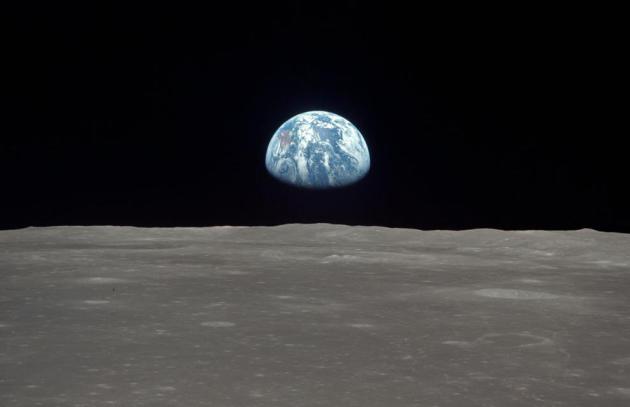
45 Years Ago We Landed Men on the Moon.
How is that even possible, especially considering the onboard computers
during the Apollo missions had a fraction of the computing power your
smartphone has today?
The Atlantic has a terrific pictorial walk down memory lane, focused on the awe-inspiring journey of Apollo 11; here's a clip: "...
Years
of effort, dangerous experiments, and bold missions led up to the Moon
landing, an event watched on live television by millions around the
world. Astronauts Neil Armstrong, Michael Collins, and Edwin "Buzz" E.
Aldrin left the Earth on a Wednesday, landed on the Moon on that Sunday,
spent a bit more than two hours walking on its surface, deploying
experiments and collecting samples, then splashed down safely in the
Pacific Ocean the following Thursday, after 8 days off-planet. Collected
here are 45 images of that historic mission, a "giant leap for
mankind," 45 years ago..." (Image: NASA).
NASA Air Traffic Control Software To Improve Spacing Between Planes.
Gizmag has an interesting story - here's an excerpt: "
As
with all technology, the tools used for air traffic control are always
improving. Recently, for example, it was announced that the first remote
air traffic control tower
would open in Sweden. In a smaller evolution, NASA has provided the
Federal Aviation Administration (FAA) with software to better manage the
spacing between planes..."

Your Sunscreen Is Really Out of Date. Here's What Congress Is Doing About It. Another reason to take the sun, like everything else, in moderation.
NationalJournal has an article that made me do a double-take; here's a clip: "
The
U.S. may finally catch up to other countries in sunscreen technology.
The ingredients that make their sunscreen superior have been awaiting
approval—or any sort of decision—from the Food and Drug Administration
for at least 12 years, with the last over-the-counter sunscreen
ingredient approved by the agency in the 1990s. There are currently
eight such ingredients stuck in the system. Meanwhile, these
technologies have been available in Europe, Asia, and Central and South
America, sometimes for more than 15 years. As a result of the backlog,
American consumers have been unable to buy the sunscreens that provide
the most effective protections against harmful rays..."

A Fish Oil - Alzheimer's Connection? Yahoo News
has a story about new research showing a possible connection between
fish oil and a lowered risk of Alzheimer's. Here's a clip: "
Fish oil
is touted as a magical potion that boosts fertility, heart health, and
weight loss and promotes a clear complexion, while lessening the effects
of depression, ulcers, diabetes and many more conditions. But there’s
another benefit to these glossy little capsules: They may prevent Alzheimer’s disease. .."
Our Bees, Ourselves.
All around the world colonies of honey bees are dying and the causes
may be manifold. We should be paying close attention, according to a
story at
The New York Times; here's an excerpt: "...
But
in the midst of crisis can come learning. Honeybee collapse has much to
teach us about how humans can avoid a similar fate, brought on by the
increasingly severe environmental perturbations that challenge modern
society. Honeybee collapse has been particularly vexing because there is
no one cause, but rather a thousand little cuts..." (File photo: Wikipedia).
FRIDAY: Partly sunny, warm breeze. Dew point: 57. Winds: S 15. High: 81
FRIDAY NIGHT: Partly cloudy. Low: 65
SATURDAY: Warm sun, isolated T-shower late? High: 82
SUNDAY: Sticky sun, stray PM storm. Dew point: 67. Wake-up: 67. High: 87
MONDAY: Sunny and stinking hot. Dew point: 72. Feels like 98. Wake-up: 72. High: 91
TUESDAY: Steamy, T-storms - some severe? Wake-up: 75. High: 83
WEDNESDAY: Clearing, less humid. Dew point: 63. Wake-up: 69. High: 85
THURSDAY: Intervals of sun, still feels like July. Wake-up: 70. High: 87
Climate Stories...
NOAA: Climate Change Is Getting Worse.
No warming in 15 years? Think again - much of the additional warming is
going into the world's oceans (and cryosphere - melting Arctic and
Greenland ice faster than computer models predicted). Here's the
introduction to a story at
The Hill: "
Changes
in the earth's climate are increasing at a steady rate, National
Oceanic and Atmospheric Administration (NOAA) warned Thursday in a new
report. Greenhouse gas emissions, sea levels, global temperatures and
super storms are all trending upward, NOAA said. "These findings
reinforce what scientists for decades have observed: that our planet is
becoming a warmer place." NOAA Administrator Kathryn Sullivan said in a
statement Thursday..."
Is Global Warming Causing Extreme Weather Via Jet Stream Waves? The Guardian
has the story; focusing on trends I've seen with the jet stream,
especially since 2010 or so - more high-amplitude waves capable of
accelerating heat/drought and flooding, since these long, looping kinks
in the upper level wind flow tend to move slower. Here's a clip: "...
People
who follow this site and the climate literature no doubt are aware that
a hotly debated topic has arisen in recent years. I have written about studies
that have linked loss of Arctic ice and warming of the Arctic region to
more severe undulations in the jet stream. That research is still in
its infancy and consequently, very exciting. While the idea that global
warming increases jet stream undulations have been challenged by others,
it is clear that some recent observations support the hypothesis..."
Image credit: Climate Reanalyzer (http://cci-reanalyzer.org), Climate Change Institute, University of Maine, USA.
Global Warming Threatens Chicago Tourism. Here's an excerpt of an Op-Ed at
The Chicago Sun Times: "...
Severe
rainstorms also have the power to frustrate business. As the river
rises because of rainfall, it becomes challenging for tour boats to fit
underneath Chicago’s many bridges. This in turn means the Chicago Harbor
Lock may have to open the gates that separate the Chicago River from
Lake Michigan to restore the river to safe levels and protect residents
from basement flooding. In the past 25 years all Chicago River lock
gates were opened six times for flood control purposes. The worrisome
part of that statistic is that four of these six times have occurred
since 2008 with the latest just occurring on July 1..."
Top 10 Warmest January – July Periods. Global temperature anomalies courtesy of NASA GISS:
2010 .73C
2007 .69C
1998 .69C
2002 .68C
2014 .65C
2005 .64C
2004 .57C
2013 .56C
2009 .55C
2004 .54C
White House Unveils Climate Change Initiatives. Here's an excerpt from
The New York Times: "...
One
of the projects involves shoring up the power supply during climate
catastrophes, and the Department of Agriculture on Wednesday will award
$236.3 million to improve electricity infrastructure in the rural areas
of eight states. A government study released in May concluded that
climate change will strain utility companies’ ability to deliver power
as extreme weather damages power lines and hotter temperatures drive
surges in demand..."
Global Warming Reaches New Records.
Voice of America reports; here's an excerpt: "
Scientific
evidence about the rising of average global temperatures seems to be
piling up. According to the Japan Meteorological Agency, average global
temperatures in April, May and June this year were the highest since the
beginning of official records, in 1891..." (Image: NASA).
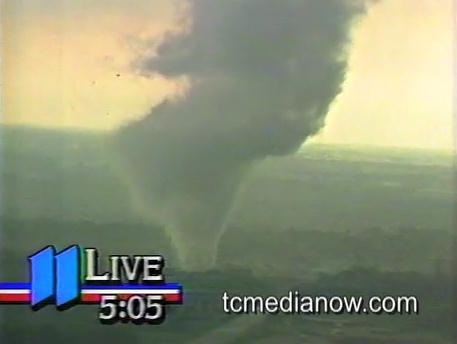
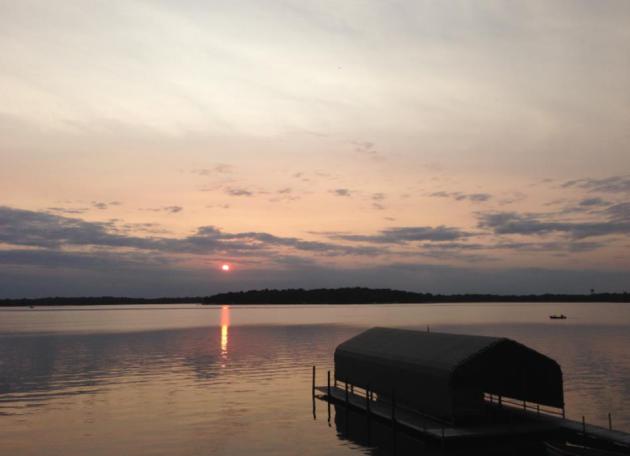
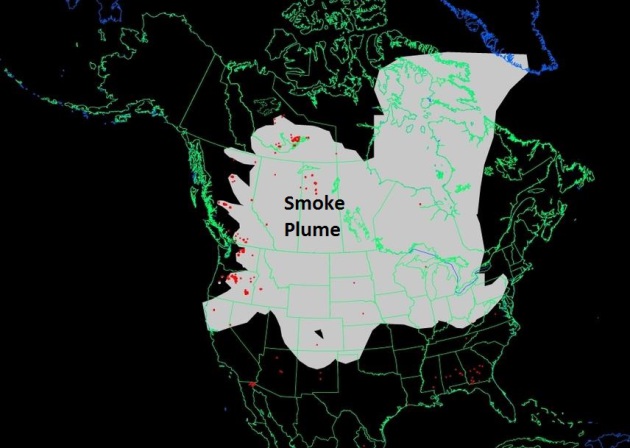
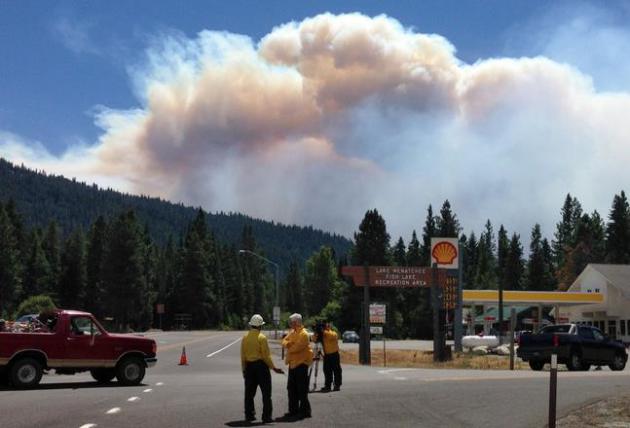
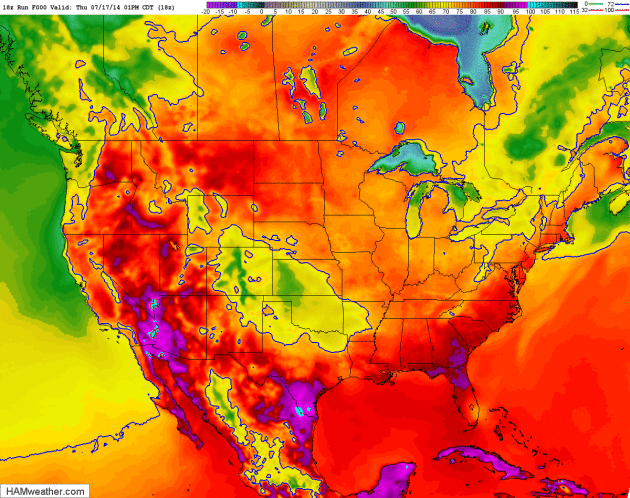
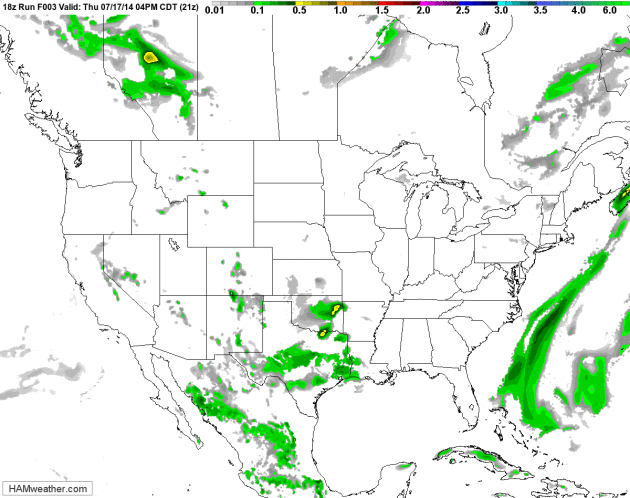
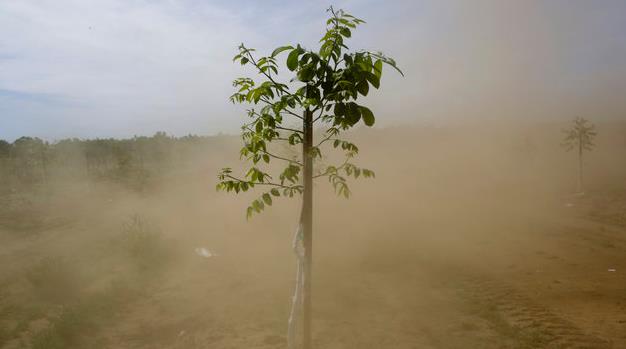
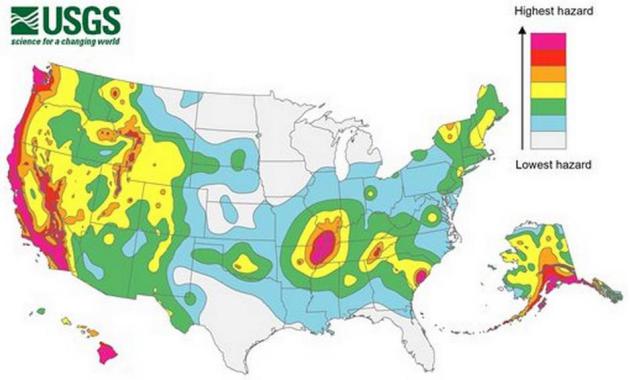




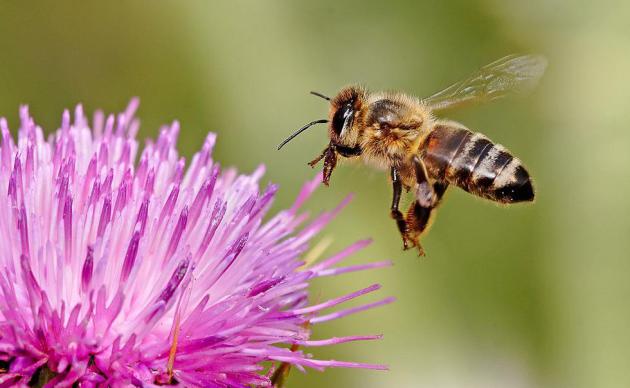


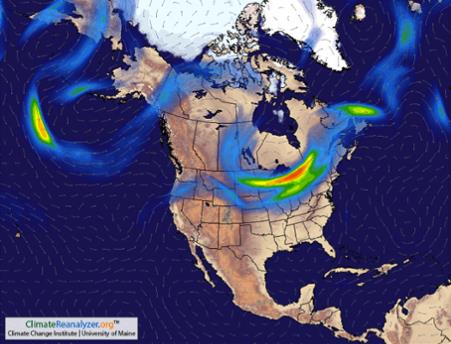
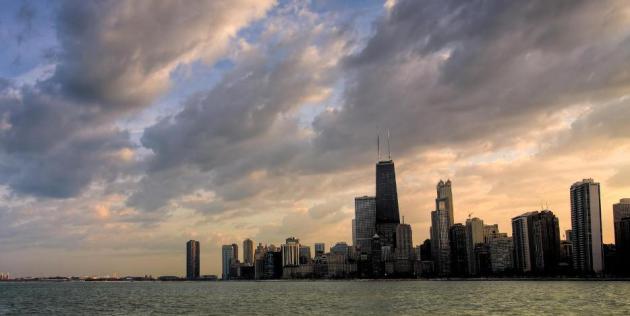
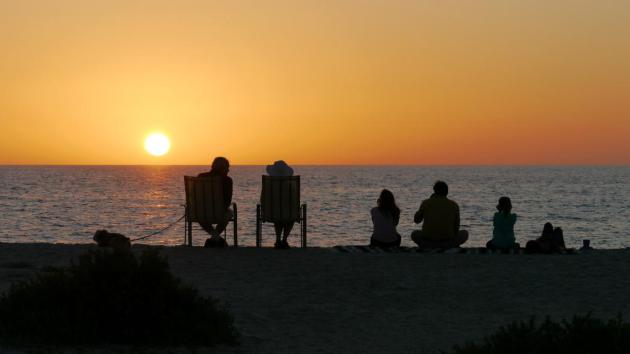
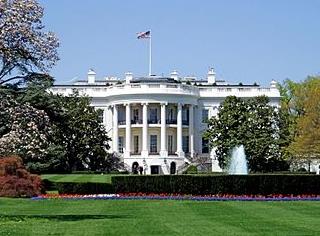
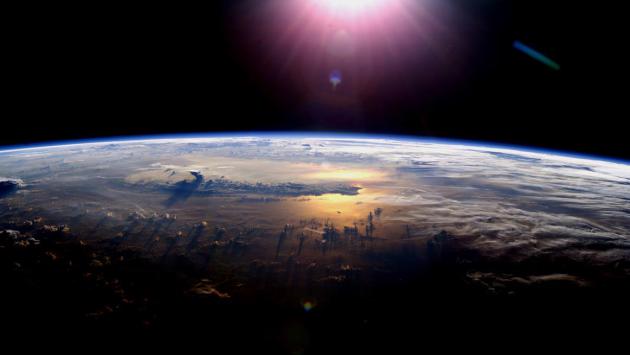
No comments:
Post a Comment